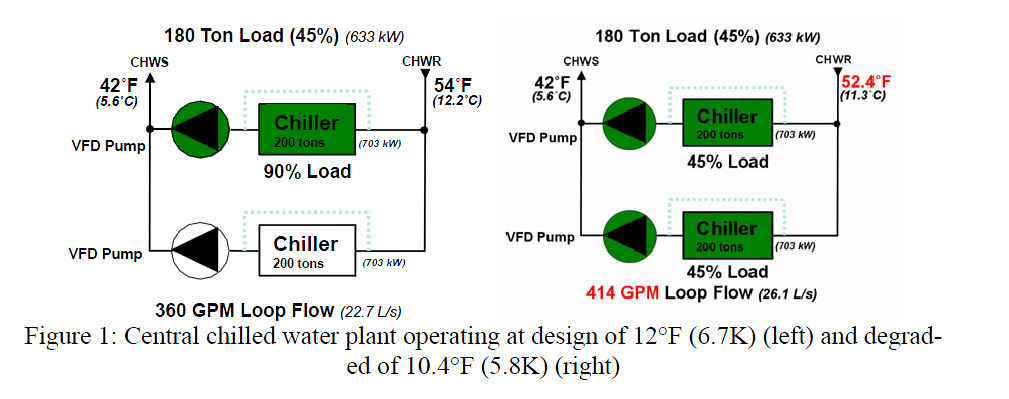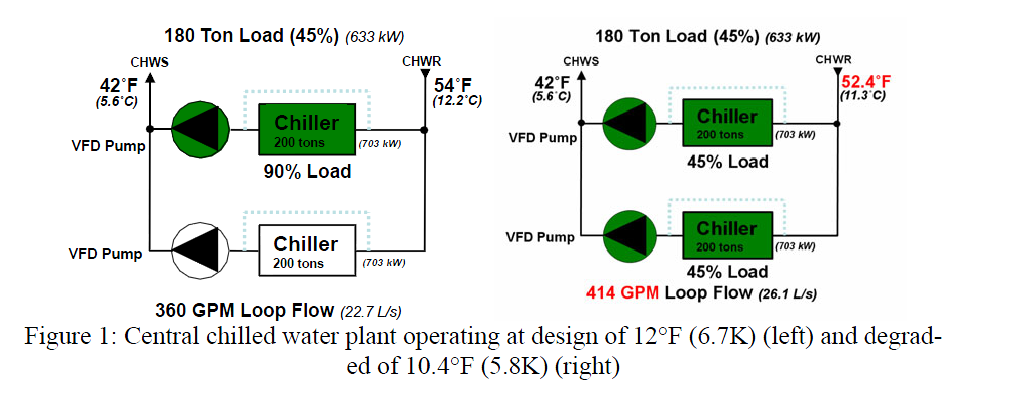Improving Campus Chilled Water Systems with Intelligent Valves
Energy is wasted when coils do not operate efficiently. Achieving the ideal amount of heat transfer in a given coil is critical for overall system efficiency. When this does not occur, pumps, chillers and boilers must work harder to maintain space setpoints, a scenario that creates substantial energy waste. This is especially problematic in large chilled water systems because it frequently results in low Delta T – meaning that return water temperatures to the chiller are lower than the designer intended which undermines chiller plant efficiency.

Many of these problems can only be addressed at the coil. Recently published; A Field Study by Gregor P. Henze, Department of Civil, Environmental and Architectural Engineering of University of Colorado Boulder and Walter Henry, Massachusetts Institute of Technology, Cambridge, MA and Marc Thuillard from Belimo Automation AG on Improving Campus Chilled Water Systems with Intelligent Control Valves.
The abstract of the field study states: “The degradation of the temperature difference between supply and return flow, known as ΔΤ degradation, in chilled water systems has been widely observed and documented over the last 25 years. High pumping energy consumption as well as reduced efficiency of the chillers operating under part-load conditions, lead to a decrease of overall system efficiency of chilled water plants. This article describes a field study conducted on two university campuses in Massachusetts and Colorado during the cooling season of 2011. The purpose of this experimental study was to alleviate ΔΤ degradation problems on both campuses through the use of intelligent pressure-independent control valves, and to quantify the improvements achieved. The MA field results revealed that the intelligent control valves when coupled with a ΔΤ management strategy have allowed the campus to serve additional cooling load on its campus with the same distribution and central plant system.”1
1 AEI 2013 © ASCE


